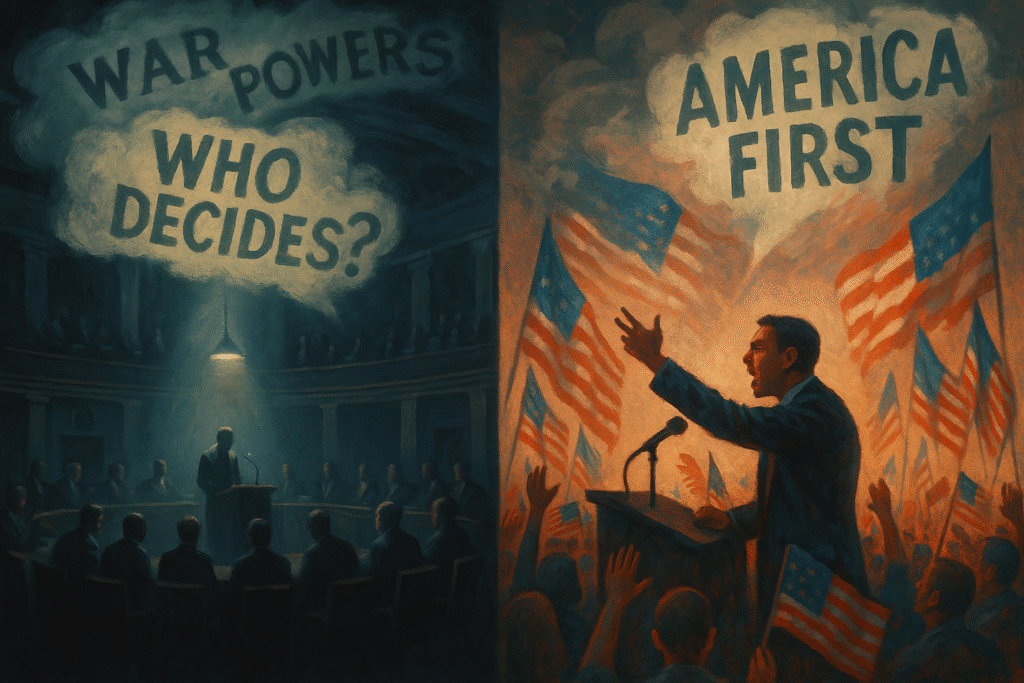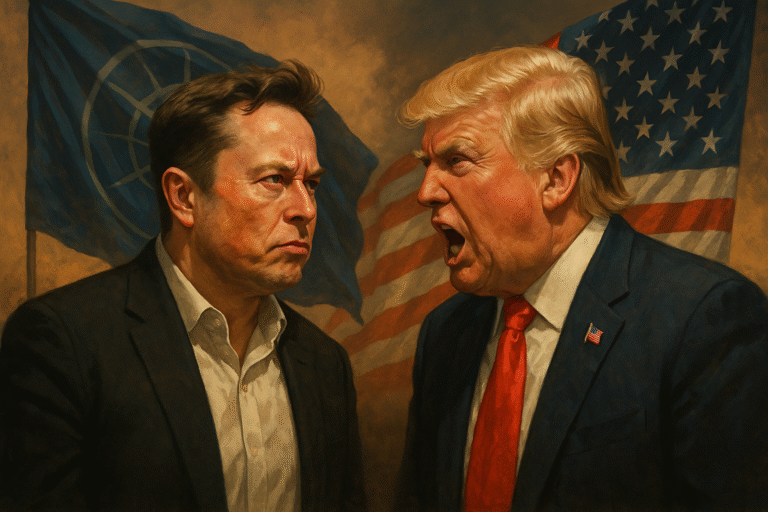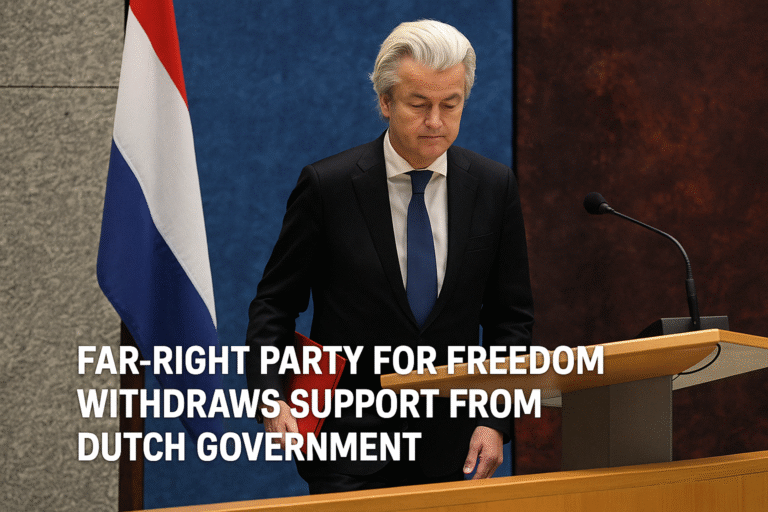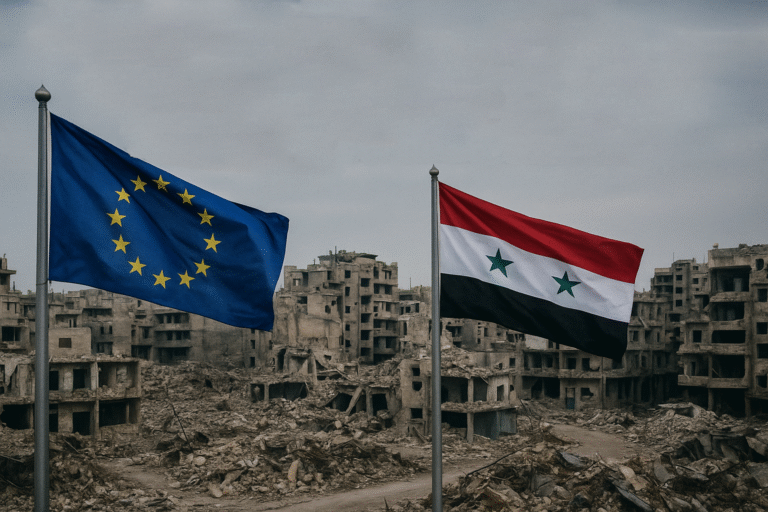Source: BBC News (17 June 2025) — “Trump faces MAGA divide over potential US response to Iran-Israel escalation”

The BBC’s recent article explores the intensifying discursive conflict within the pro-Trump “MAGA” coalition regarding U.S. foreign policy in the context of escalating tensions between Israel and Iran. More than a question of military strategy, the debate reflects competing hegemonic imaginaries about sovereignty, security, and national identity within the American populist right. The Trumpian articulation of “America First” — itself a floating signifier — is pulled simultaneously toward militarist and non-interventionist logics, revealing deep ideological fractures within the post-2016 Republican field.
The Crisis of Coherence and the Discursive Politics of Ambiguity
Donald Trump’s own rhetoric, oscillating between isolationist promises and hawkish warnings against a nuclear Iran, exemplifies what Michel Foucault identifies as the strategic deployment of discourses not to express consistency but to mobilize authority across heterogeneous audiences. Political speech, under such conditions, functions less as a rational deliberation and more as a tactical performance — a terrain where power operates through the ambivalence of enunciation. This is especially evident in Trump’s attempt to simultaneously present himself as a protector of Israel and a break from the “forever wars” paradigm.
The performative nature of political speech here aligns also with Judith Butler’s theory of discursive subjectivation: Trump’s supporters are not merely addressed by positions, but constituted through them — particularly through media agents such as Tucker Carlson and Steve Bannon, who act as ideological nodes in the construction of a “real American patriot” identity, opposed to elite-driven military interventions.
Hegemonic Struggles and Populist Realignments
From a Gramscian or Laclau-Mouffean perspective, the current intramural conflict can be read as a struggle over the meaning of the populist project itself. While figures like Lindsey Graham and Ted Cruz advocate for a more traditional neoconservative commitment to American military power abroad (under the guise of defending allies like Israel), others like Thomas Massie, and media populists like Carlson, seek to redefine the nationalist narrative through anti-interventionism and Congressional primacy.
This reflects a reconfiguration of what Laclau and Mouffe call the chain of equivalence within populist discourse: the antagonism is no longer simply between “the people” and “the globalist elite,” but between two competing versions of what the “people’s” will entails — one favoring assertive internationalism, the other radical withdrawal.
Normative Authority and the Politics of Decision
The legislative attempt to constrain presidential war powers — highlighted in Massie’s proposed bill — introduces a classic Habermasian tension between communicative rationality and populist sovereignty. The push for Congressional oversight reflects a proceduralist aspiration toward deliberative legitimacy. However, this comes into conflict with the Schmittian logic often operative in populist movements, where sovereignty is conceived as the capacity to decide unilaterally in a state of exception — a principle often embodied in Trump’s executive-centered style of governance.
Indeed, the discursive configuration of this crisis reveals that it is not merely about “what to do” in the Middle East, but about who gets to decide and on what grounds. The question of war thus becomes a site of institutional contestation — between legislative norms and charismatic exceptionalism
The BBC article captures a symptomatic moment of instability in the American right: an ideological and discursive contest over the meaning of nationalism, legitimacy, and geopolitical responsibility. As the MAGA project matures, its populist grammar increasingly fragments into competing hegemonic logics — a condition that not only affects foreign policy decision-making but reflects broader questions about the future of democratic authority in an age of political ambiguity.



